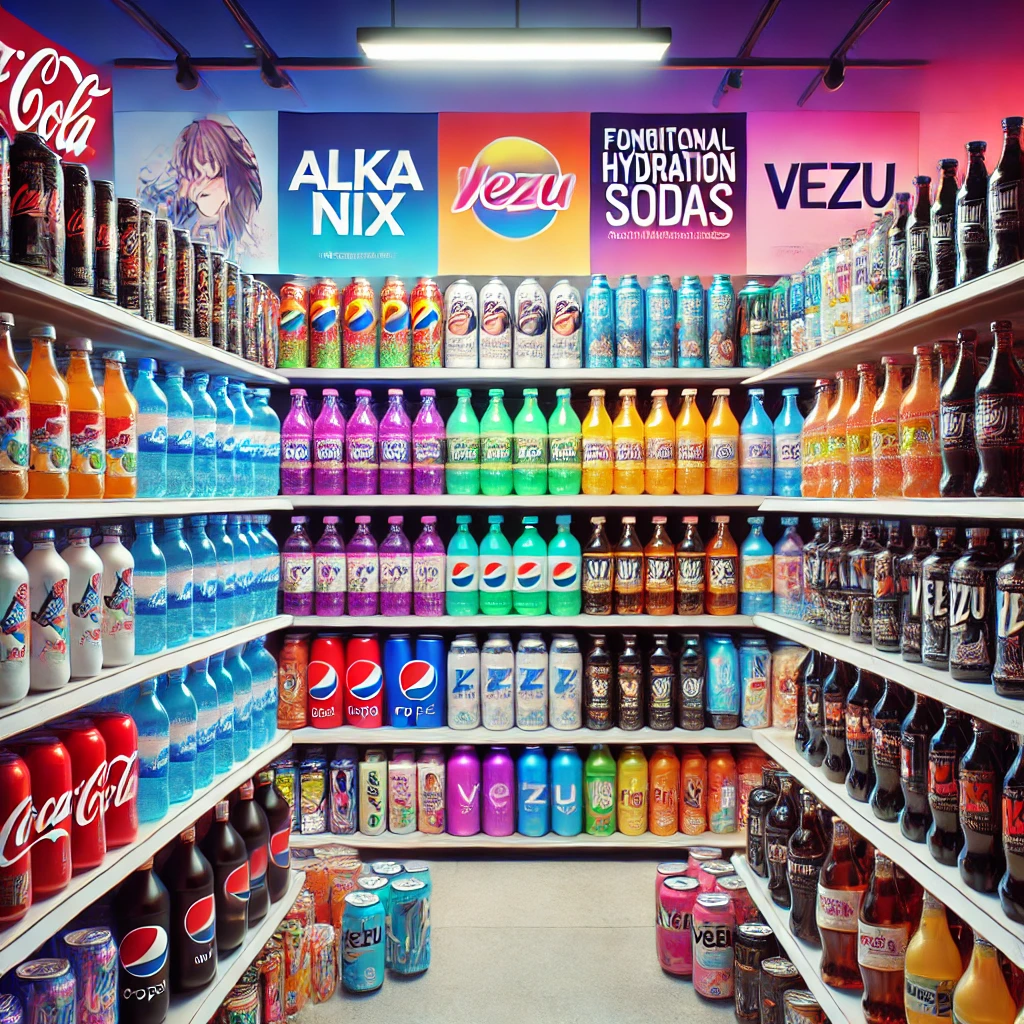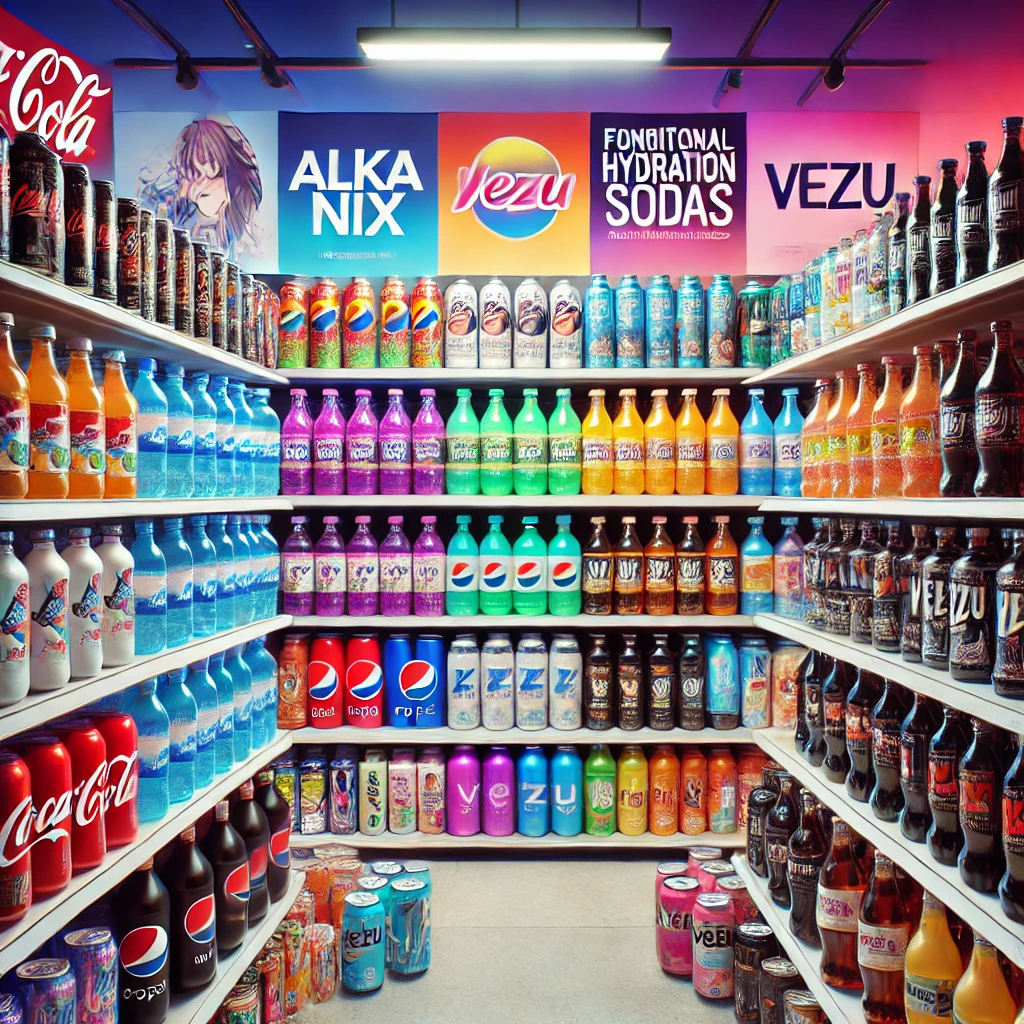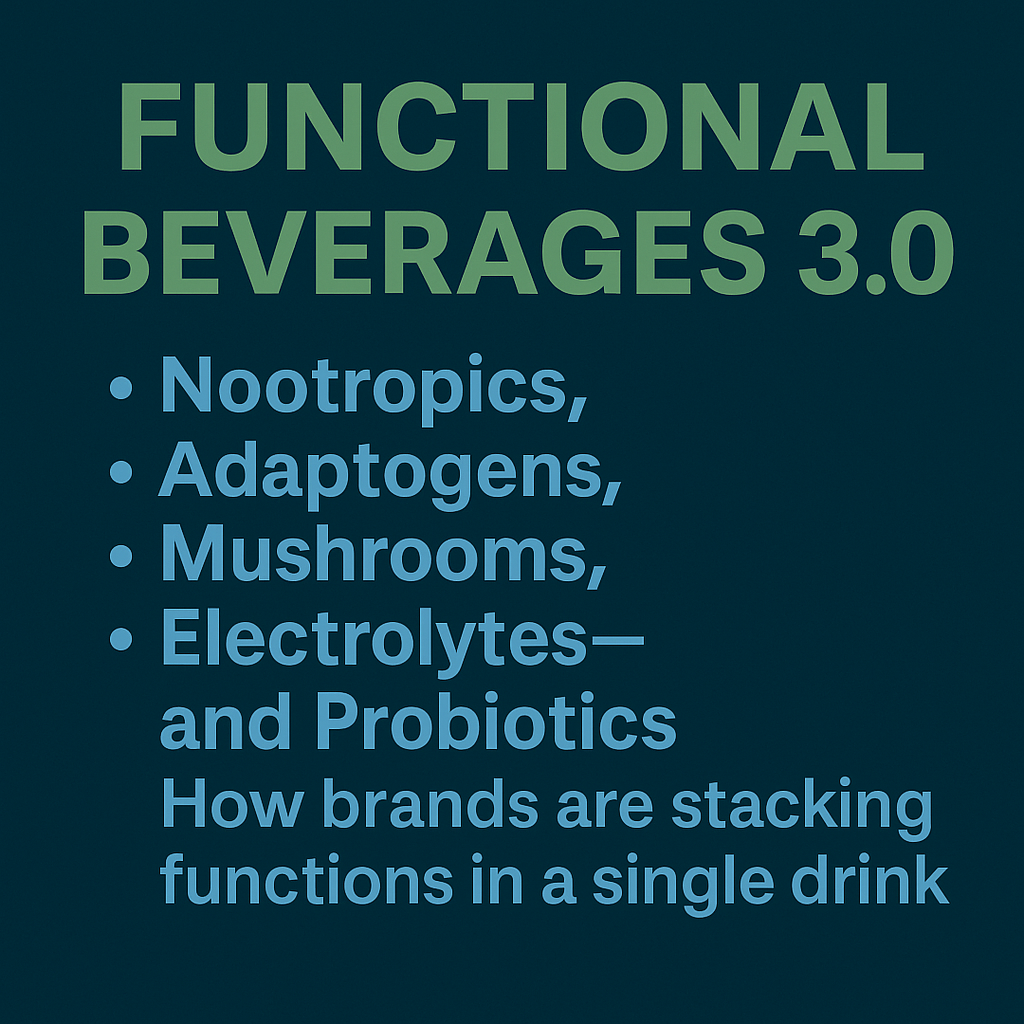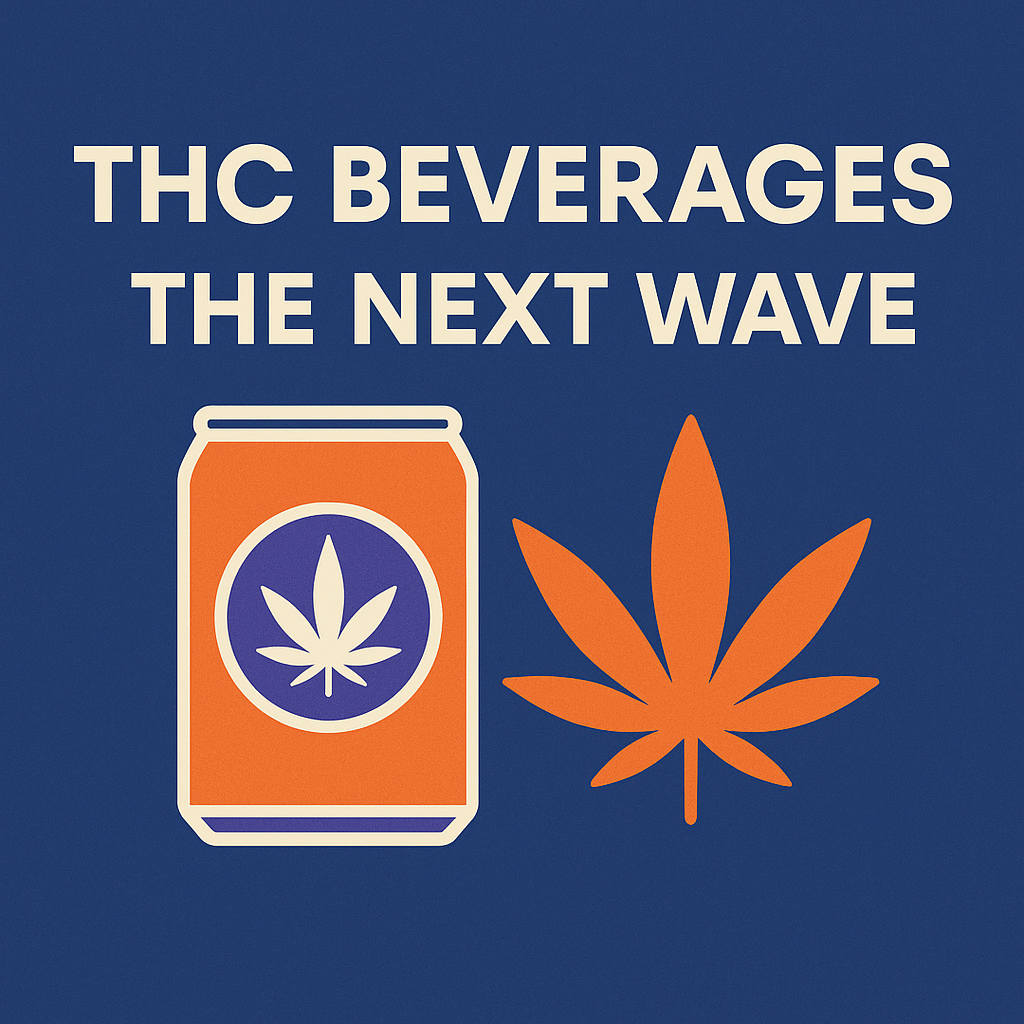The functional beverage space is evolving—fast. What started with protein shakes and vitamin waters has transformed into a sophisticated market…
Why Chain Convenience Stores Are Slow to Embrace Innovative Beverages

The beverage industry is at the forefront of innovation, with brands delivering functional, health-conscious, and adventurous products that consumers are eagerly seeking. Yet, chain convenience stores have largely stayed within the confines of legacy brands, slow to embrace this transformation.
This reluctance not only limits opportunities for emerging brands but also exposes potential ethical and legal concerns arising from the outsized influence of major beverage players–Coca-Cola, PepsiCo, and Keurig Dr Pepper (KDP)–in convenience store retail.
Why Convenience Stores Struggle to Adopt Innovative Beverages
1. Dominance of the Big 3
The “Big 3” beverage companies hold a virtual oligopoly over convenience store shelf and cooler space, leveraging their size and financial resources to maintain dominance.
- Exclusive Agreements: Coca-Cola, Pepsi, and KDP often provide branded refrigerators free of charge to retailers, but these agreements usually restrict the use of these coolers to their products.
- Slotting Fees and Rebates: The Big 3 offer lucrative financial incentives for exclusivity, crowding out smaller, innovative brands that can’t match their spending power.
- Category Crowding: These companies control not just soda but also bottled water, teas, energy drinks, and more, creating barriers for emerging brands across multiple categories.
2. Risk Aversion
Convenience stores prioritize products with proven sales volume to minimize financial risks.
- Consumer Familiarity: Legacy brands dominate because they are familiar and reliable, while innovative beverages often require consumer education, which stores perceive as a gamble.
- Market Perception: Functional and premium beverages, such as pH water and sparkling alternatives, may be seen as niche products unsuitable for high-velocity convenience store sales.
3. Limited Shelf Space
Convenience stores have far less real estate than grocery or big-box retailers, making space allocation a critical decision.
- Physical Constraints: Limited shelf and cooler space forces retailers to prioritize fast-moving products, leaving little room for experimentation.
- Missed Opportunities: This approach ignores shifting consumer preferences toward health-conscious and premium options.
4. Centralized Decision-Making
Large chains often rely on centralized purchasing systems, which can slow the rollout of new products.
- National Rollouts Over Regional Testing: Chains prefer products that can scale quickly nationwide, limiting opportunities for innovative beverages to prove themselves in smaller markets first.
5. Distribution Barriers
Convenience stores often rely on Direct Store Delivery (DSD) systems controlled by the Big 3, making it difficult for smaller brands to break through.
- Independent Distributors Overlooked: While independent distributors offer flexibility, large chains favor the reliability and scale of DSD networks.
Potential Ethical and Legal Issues with the Big 3 Oligopoly
The dominance of the Big 3 in convenience store channels raises questions about fair competition and market manipulation:
- Anti-Competitive Practices
- Exclusivity Agreements: Contracts that restrict shelf and cooler space to Big 3 products may violate antitrust laws by limiting market access for competitors.
- Barrier to Entry: Smaller brands face insurmountable hurdles, stifling innovation and consumer choice.
- Price Fixing and Margin Pressure
- Rebate-Driven Pricing: The Big 3 use rebates and slotting fees to manipulate retail pricing, potentially leading to artificially high costs for consumers and low margins for stores.
- Consumer Harm
- Limited Choice: Consumers are denied access to innovative and healthier beverage options because of the Big 3’s market dominance.
- Misinformed Purchases: Retailers may prioritize Big 3 products over consumer demand due to financial incentives, skewing purchasing decisions.
- Legal Scrutiny
- Regulatory Risks: Increasing attention from regulators could lead to investigations into the Big 3’s practices, resulting in fines, legal battles, or forced changes in the marketplace.
Innovative Beverages That Deserve a Spot in Convenience Stores
Despite these barriers, several innovative beverages have proven their value in other retail channels and deserve space in convenience stores:
- Olipop and Poppi (Prebiotic Sodas)
- Why They Deserve It: These functional sodas offer gut health benefits and nostalgic flavors like Root Beer and Orange Cream. They align with growing consumer demand for healthier soda alternatives.
- Liquid I.V. (Hydration Multiplier)
- Why It Deserves It: This portable hydration solution is ideal for on-the-go consumers, offering electrolytes and rapid hydration in powder form.
- Vezu Sparkling Water
- Why It Deserves It: Vezu stands out with bold flavors like Dragonfruit Lychee and Cucumber Melon Splash, offering a premium alternative to Sparkling Ice and other legacy sparkling water brands.
- Alka Nix (pH Water)
- Why It Deserves It: Alka Nix combines high-quality, pH-balanced water with unique anime-themed packaging, catering to younger, trend-conscious consumers. Its focus on functional hydration taps into a booming category.
- Super Coffee (Keto-Friendly Coffee)
- Why It Deserves It: Packed with protein and MCT oil, Super Coffee appeals to fitness-conscious consumers seeking functional, low-sugar energy options.
Strategies for Brands to Break Through
- Build Consumer Demand
- Direct-to-consumer marketing and online sales can help create demand that forces convenience stores to take notice.
- Leverage Regional Success
- Demonstrating sales success in regional markets can build a strong case for national chain adoption.
- Collaborate with Retailers
- Co-branded promotions, sampling programs, and in-store activations can drive trial and increase visibility.
Conclusion
The dominance of Coca-Cola, Pepsi, and KDP in convenience stores limits innovation and consumer choice while raising ethical and legal concerns. As consumer preferences shift toward health-conscious and functional options, chain convenience stores must adapt to meet these demands–or risk losing relevance.
Innovative brands like Olipop, Liquid I.V., Vezu, and Alka Nix represent the future of beverages. By making room for these products, convenience stores can stay competitive and provide consumers with the variety they’re seeking. The time for change is now–will the industry rise to the challenge?
For more information please go to www.cascadiafoodbev.com.







